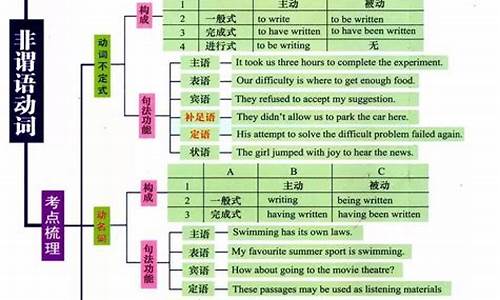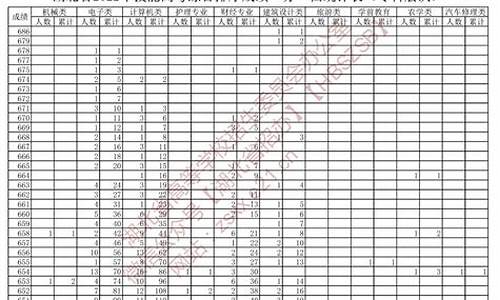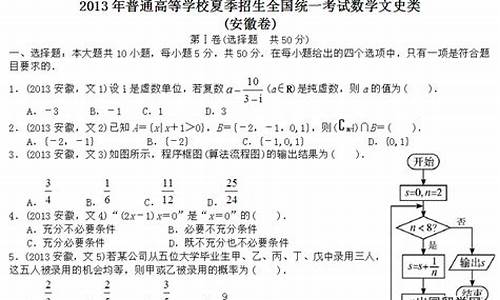您现在的位置是: 首页 > 志愿填报 志愿填报
英语高考语法总结-英语高考语法知识
tamoadmin 2024-08-21 人已围观
简介1.高中英语语法知识点整理总结2.高考英语语法: 英语时间副词的用法3.高中英语语法知识点总结大神们帮帮忙4.高考英语语法: 独立主格结构的七种形式5.高中英语语法知识点总结6.高中英语语法知识点整理高中英语语法知识点整理总结 高中英语知识点有哪些?应该怎么学习高中英语?有很多的同学是非常想知道,高中英语语法知识点有哪些,我整理了相关信息,希望会对大家有所帮助! 点击获取更多"高中英
1.高中英语语法知识点整理总结
2.高考英语语法: 英语时间副词的用法
3.高中英语语法知识点总结大神们帮帮忙
4.高考英语语法: 独立主格结构的七种形式
5.高中英语语法知识点总结
6.高中英语语法知识点整理
高中英语语法知识点整理总结

高中英语知识点有哪些?应该怎么学习高中英语?有很多的同学是非常想知道,高中英语语法知识点有哪些,我整理了相关信息,希望会对大家有所帮助!
↓↓↓点击获取更多"高中英语知识点"↓↓↓
★ 高一英语必修一语法知识 ★
★ 高考英语作文万能句子 ★
★? 高三英语复习范文 ? ★
★ 英语作文热点话题及范文 ★
高中英语语法重要知识点 :不定冠词
不定冠词a,an与one同源,表示微弱的一的概念,但并不强调数目,用来表示不确定的人或事物。
A用在辅音前,而不是辅音字母前;an用在元音前,而不是元音字母前。
a university in Asia
1.表示同类中的任何一个
A cat has nine lives.
2.表示泛指的某人、某物
I know a John Lennon,but not the famous one.
3.表示数量的
He has a daughter.
4. 表示单位数量的每一
I earn 10 dollars an hour.
5.表示相同的
The two birds are of a color.
6. 用于集体名词前
He grows up in a large family.
7. 在某种情况下可用于抽象名词和物质名词前
China has a long history.
高中英语语法知识点整理 总结 : 定冠词的用法
1.表示特定的人或物
2.表示地球、宇宙中独一无二的事物
主要指各种天体及世界上比较有影响的物体。The sun,the moon,the earth
3.表示地点、方向、时间、方式等 at the corner 在拐角处
1) 在表示季节的名词前常不用冠词。In spring 在春天
2) 具体某年的某个季节,需用冠词。In the summer of the year2008
3)用于序数词或形容词的最高级前 the first the second
4)用于形容词前使其名词化 the rich the poor
5)用于复数姓氏前,表示―夫妇‖或全家 The Smiths
6)用于乐器名词前 Play the piano
7)用于by+the+计量单位名词 By the pound
1. 用于复数名词前
复数名词泛指某类人或物时,其前通常用零冠词。Students should obey the school rules. 学生应该遵守校规。复数名词若需特指,则要加定冠词。The students are too lazy. 这些学生太懒。
2. 用于不可数名词前
不可数名词表示泛指时,其前通常用零冠词。如:Bread is made from flour. 面包是用面粉做的。
Wood is a poor conductor of sound. 木头是声音的不良导体。不可数名词若需特指,则要加定冠词。
He sawed the wood into three pieces. 他把木头锯成三块。
3.用于专有名词前
在通常情况下,专有名词前要用零冠词。如:
Mr Smith is our English teaches us English. 史密斯先生教我们英语。在特殊情况下,若专有名词需要特指,也可加定冠词。如:The Smith you‘re looking for no longer lives here.
4. 用于抽象化的可数名词前
有些可数名词抽象化后表示表示的活动,其前通常零冠词。Jim has gone to bed. 吉姆已上床睡觉了。
She goes to church every Sunday. 她每周星期天都去做礼拜。
这类主要涉及bed, church, class, college, school, university, work, hospital, prison, market, sea, town等。另外,这类名词前用不用冠词有时与英美英语的表达习惯有关。如:―住院‖在英国英语中通常说成 in hospital,而在美国英语中则通常说成in the hospital;类似的还有go to university (英)上大学 / go to the university (美)上大学;at table (英)在吃饭 / at the table (美)在吃饭。
5. 用于职务及头衔前
当表示职务及头衔的名词用作表语、补足语及同位语时,其前通常用零冠词。如:Wilson became President of the U. S. A. 威尔逊当了。He will be made captain of the football team. 他将被选为 足球 队队长。
6. 在表示学科、语言、三餐、月份、季节、节日、星期等名词前,通常用零冠词。
We are all interested in physics. 我们大家都对物理感兴趣。
7. 用于某些固定结构中
go to sea 去当水手 at home 在家 at night 在晚上 at least 至少
at most 至多 at first 首先 at last 最后 in bed 在床上
on foot 步行 face to face 面对面
高中英语语法知识点整理总结:代词
高考中对代词的考查主要集中在人称代词(主要是其中的it)、关系代词、指示代词和不定代词上。
一、 it的用法 ?
1.作人称代词
John likes playing Ping pong./ He always does it in the afternoon.(指代上下文提到的事物); /It's time we went home. / How far is it from here to your home ? / It is getting warmer and warmer./ It's very quiet at the moment.(可指时间、天气、环境等) 2.引导词
A.作形式主语,代替由不定式、动名词或从句表示的真正主语。
It's important for us to learn a second language./ It's no use talking to him./ It's known to all that the earth goes round the sun.
B.作形式宾语,代替由不定式、动名词或从句表示的真正宾语。
We feel it our duty to help others./ He made it clear that he would lee the city. C.强调结构:It is (was) +被强调部分+that (或who)…
注意:在强调结构中,如被强调部分为时间状语或地点状语,其后的连接词也绝不能为when 或where,而应用that 。在复习中,一定要注意句式的不同。It was in Shanghai that I bought the guitar.(that引起强调句) It was Shanghai where I bought the guitar.(where引起定从)
It was twelve o'clock when we arrived there.(when引起时间状语从句) It was at twelve o'clock that we arrived there.(that 引起强调句)
3. it,one,that 的区别:作为代词,这三个词的对比使用是高考的 热点 之一。—Why don't we take a little break? —Didn't we just he __________? A.it B.that C.one D.this
The Parkers bought a new house but _________will need a lot of work before they can move in. A.they B.it C.one D.which
one 用以指代同类事物中的任一,that 特指性强,指代可数与不可数词,而it指代上文提过的同一事物。
二、 关系代词
who,whose,whom,which,that,as
1)which可以引导非限定性定语从句,代表前面整个 句子 的内容,并且在从句中做主语 2)that的用法 1)不用that的情况
a) 在引导非限定性定语从句时。b) 介词后不能用。
We depend on the land from which we get our food. We depend on the land that/which we get our food from.
2) 只能用that作为定语从句的关系代词的情况 a) 在there be 句型中,只用that,不用which。
b) 在不定代词,如:anything, nothing, the one, all, much, few, any, little等作先行词时,只用that,不用which。
c) 先行词有the only, the very修饰时,只用that。d) 先行词为序数词、数词、形容词最高级时,只用that。. e) 先行词既有人,又有物时。
举例:
All that is needed is a supply of oil. 所需的只是供油问题。
Finally, the thief handed everything that he had stolen to the police. 那贼最终把偷的全部东西交给了警察。
3) as的用法
AS作关系代词,用来引导定语从句:限制性定语从句和限非制性定语从句 一、AS引导限制性定语从句
AS引导限制性定语从句时,通常和such, the same, as(so)等连用,构成such...as/such as, the same...as/the same as, as(so)...as等结构,在从句中可作主语,宾语和表语。
1.such...as/such as意为―...的那种...,像那样的‖,such...as/such as引导限制性定语从句时,既可指人,也可指物。such用于名词之前时,具有形容词性质;such单独使用(即后面不接名词)时,具有代词性质。
Don‘t trust such men as praise you to your face.(as作主语) 不要相信那种当面吹捧你的人。
You should read only such books as you can understand without much difficulty.(as作宾语) 你应当只读那些你读起来不太难懂的书。
Associate with such as will improve your manners.(as作主语) 要和能改善你的言行的那种人结交。
2.the same...as/the same as意为―与...同样的‖,和such一样,the same既有形容词作用,又有代词性质。
We he arrived at the same conclusion as they he.(as作宾语) 我们已得出和他们同样的结论。
比较:the same...as和the same...that不同,前者是―同那一个相似‖,后者是―正是那一个‖。如:
This is the same watch as I lost. 这同我丢的那块表一样。
This is the same watch that I lost? 这正是我丢的那块表。
3.as(so)...as意为―和...一样‖,后接由many, much等修饰的名词或由形容词修饰的单数名词,注意其语序为as(so)+adj.+a+n+as,如:It‘s as pleasant a film as I he ever seen. 这是一部和我以往看的同样好的**。
As many soldiers as marched were killed. 很多游行的战士都被杀了。
注意:such ...as与such...that ,so...as与 so...that的区别:that是连词,引出结果状语从句,在从句部分不作成分;as是关系代词,引出定语从句,在从句中可作主语,宾语和表语。比较:He is such a nice boy that everyone likes him. He is such a nice boy as everyone likes.
It is so difficult a problem that nobody can work it out. It is so difficult a problem as nobody can workout.
三、AS引导非限制性定语从句
AS引导非限制性定语从句时,通常指的不是主句中的某一个名词(先行词),而是指整个主句表达的内容,对主句所作的陈述进行附加说明,意为―这...,如...或正如...‖。这种从句可位于主句之前,之中或之后。
As we all know, Taiwan belongs to China. Taiwan, as we all know, belongs to China. Taiwan belongs to China, as we all know. 注意下面的习惯用法:
as is well discussed 正如已讨论过的
as is often said 正如通常所说 as is often the case 通常就是这样 as has been pointed 正如所指出的那样 as has been said before 如上所述 as often hens 如同经常所发生的那样 as might be expected正如所料 as is well known to all众所周知
在多数情况下,从句中的谓语助动词可以省略 as explained before 如前面所解释的 as mentioned above 如前面所提到的 as shown in the figure 如图所示 as seen from the table 从表中可以看出 as already discussed 正如已讨论过的
四、不定代词
一) . some 与 any 的用法
1. some 用于肯定句以及表示建议或期待得到肯定回答的问句。修饰单数名词时,意为某个。如:
I he some questions about the assignment. (希望得到肯定答复)。
2. any 用于否定句和疑问句时,表示一些。用于肯定句时,只和单数名词或不可数名词连用,表示任何。如:
The medicine is on sale every where. You can get it at any chemist?s. 二) . each 与 every 的用法
1. each 强调个体,表示两个或两个以上中的每一个,在句中可充当主语、宾语、定语和同位语。如:
There are trees and flowers at each side of the road.
2. every 强调整体,表示三者或三者以上中的每一个,只能作定语,不能说 every of them ,要说 every one of them .
Every student in our class works hard. 三 . no one 与 none 的用法
1. no one 意为没有人,只能指人,不能指物,不可与介词 of 连用,谓语动词用单数形式,回答 who 引导的问句。如:Who is in the classroom? No one.
2. none 既可指人,也可指物,强调数量,意为一点也不,一个也不;谓语动词既可用单数也可用复数;常与 of 连用,通常指三者以上的人或物中没有一个,回答 how much 和 how many 引导的问句。如:
They were all tired, but none of them would stop to he a rest. 四 . other, another, others, any other, the other 的用法
1. other 表示泛指,意为另外的、 其它 的。常与复数名词或不可数名词连用。如果其前有 the, this, some, any, each, every, no, one 以及形容词性物主代词时,其后就可接单数名词。如:I he no other place to go.
2. another 常用于指三者或三者以上中的另外一个,泛指单数。可单独使用,也可后接名词。如果其后接复数名词,则表示又、再、还。如:This cap is too small for me. Show me another (one)。We need another three assistants in our shop.
3. others :它是 other 的复数形式,表示泛指,意为别的人或物,但不指全部。特指时在其前加定冠词;前面可加任何限定词以及数量词。如:He has more concern for others than for himself.
4. any other 表示一个之外的其他任何一个,而不是两个之中的另一个。如:China is larger than any other country in Asia.
5. the other :表示两者中的另外一个。可单独使用,也可接单数名词。如:No agreement was reached in the discussion as neither side would give way to the other.
五 . all 与 both 的用法 均表示都,但 all 表示三者以上的人或物, both 则表示两个人或物。二者都表示肯定意义,如果与 not 连用时,则表示部分否定。
六 . neither 与 either 的用法 都可用于表示两个人或物。neither 表否定意义,意为(两者中的每一个)都不;而 either 表肯定意义,意为(两者中的每一个)都。都可单独使用,也可同介词 of 连用。如:Both teams were in hard training; neither willing to lose the game. Do you want tea or coffee? Either. I really don't mind.
高中英语语法的 学习 方法
首先先你要端正心态,不要急躁,,你做你自己的事,这样才能静下心来学习。要成为英语高手就必须比别人走更多的路,做更多的事。你应该明白一个事实,英语是单词和语法的综合,所以单词和语法都要拿下。
其次,对于单词,有如下几种方法,第一个,是加强记忆的频度,也就是说,早上记了几个,隔几个小时又看一次,总之一天之内,记忆的间隔不要太长,否则你辛苦积累的记忆会随着时间的延长而淡化,第二个,是可以根据自己的理解编 顺口溜 ,比如good morning 是狗摸你…(见笑了)…,第三个,最重要的是,记单词的时候,不要忘了阅读,一边记单词,一边看 文章 ,这样可以把孤立的单词串联起来,记忆的效果会加倍,第四个。
我建议你记单词要分门别类记忆,要形成一个意群,比如,重要性用magnitude magnificence ,表示非常,大大地有exceedingly,tremendously,extremely……这样做在你写作时,是十分有好处的,写作时不要尽写一些低级词汇,你要写高级词汇,比如重要性写magnitude,许多写a multitude of 或者handsome。
高中英语语法知识点整理总结相关文章:
★ 高中英语语法归纳整理
★ 高中英语语法总结
★ 高中英语语法归纳总结
★ 高一英语语法知识点总结
★ 高一英语语法知识点总结(2)
★ 高二英语语法知识点
★ 高三英语的语法知识点归纳
★ 高中英语的语法知识总结
★ 高中英语的知识点归纳
★ 高中必备英语知识点归纳
var _hmt = _hmt || []; (function() { var hm = document.createElement("script"); hm.src = "s://hm.baidu/hm.js?fff14745aca9358ff875ff9aca1296b3"; var s = document.getElementsByTagName("script")[0]; s.parentNode.insertBefore(hm, s); })();高考英语语法: 英语时间副词的用法
高考英语语法:英语时间副词的用法
1. 常见的时间副词
常见的时间副有now, then, soon, ago, recently, lately, later, finally, before, early, today tomorrow, yesterday, tonight, suddenly, immediately, already, just 等。
2. 时间副词在句中的位置
(1) 表确定时间的副词(如today, yesterday等)通常位于句末,有时也位于句首:
He went home yesterday. / Yesterday he went home. 他昨天回家了。
而那些表示非确定时间的副词(如 soon, recently, suddenly 等)则除可用于句末(最常见)或句首外,还可位于句中(通常位于实义动词之前,动词be、助动词、情态动词之后):
He went to Paris recently. / He recently went to Paris. / Recently he went to Paris. 最后他去了巴黎。
(2) still, already, just 等几个表示时间的副词通常位于句中(实义动词之前,动词be、助动词、情态动词之后):
He’s just left for school. 他刚刚去学校。
I he already finished my work. 我已经做完了工作。
当要表示强调时,still和already也可位于动词be、助动词等之前:
She was still [still was] beautiful at the age of forty. 她到了40岁仍然很美。
I already he told him about it. 我已经把情况告诉他了。
still若用于否定句,则总是位于助动词之前:
I still don’t understand what you mean. 我还是不明白你的意思。
另外,still 和already 还可位于句末,表示惊奇:
Are you on page one still? 你还在看第1页?
Is your mother back already? 你妈妈就已经回来了?
高中英语语法知识点总结大神们帮帮忙
一、非谓语动词 “非谓语动词”可分为动词不定式、动名词和分词。它在句子中的作用很多:除了不作谓语外,它可以充当主语、宾语、表语、定语、状语与复合宾语(主语补语或宾语补语)。有些及物动词后面接不带to的不定式作复合宾语。这些动词归纳如下:一感(feel).二听(hear,listen to),三让(he,1et, make),四看(see,watCh,notice,observe)。再加上help somebody(to)do something和美国英语look at somebody do somthing。还有“二让”属特殊:get somebody to do something 与keep somebody doing。而有些及物动词后面接动名词(the -ing form)作宾语。这些动词归纳为一句话:Papa C makes friends。这是由如下动词的开头字母组成:permit,advise, practise,oid,consider,mind, allow,keep,enjoy,suggest, finish,risk,imagine,escape,need,delay,stand(忍受)。 为了容易记住,也可以编成顺口溜:“允许完成练习,建议避免冒险,考虑延期逃跑,喜欢保持想象,需要反对忍受”。其相对应的动词依次是:permit/allow,finish,practise; advise/suggest, oid,risk: consider, delay, escape/miss; enjoy/reciate, keep, imagine; need/want/require,mind. can't help/can’t stand。 二、复合句 1、学生最容易混淆的是定语从句与同位语从句的区别。 例如:A、The news that our team has won the match is true. (同位语从句) B、The news that he told us surprised everybody here. (定语从句) 关键的区别在于连接或关系代词that:有意义的是定语, 无意义的是同位。因为引导定语从句的that在从句中作主语或 宾语,而引导同位语从句的that只起到连接词的作用。 2、接着容易混淆的是引导定语从句的关系代词that与 which:that之前是不定(代词)、序数(词)、(形容词)最高级:which之前是介词短语与逗号(非限制性)。 例如:A、All that we he to do is to practise every day. B、The first lesson that I learned will never be forgotten. C、I he lost my pen,which I like very much. D、The house in front of which there is a garden is my home. 三、It的用法 1、It除了代替人和物以外,还可以作形式主语。而真正的主语(不定式、动名词或从句)则放于谓语或表语之后。 例如:It is nor easy to finish the work in two days. 然而有少数表语之后接动名词作真正的主语。这些表语是:无助(no help)、无用(no use)、没好处(no good);工作(hard work)、费时(a waste of time)、又危险(a danger)。 例如:A、It is no use crying over spilt milk. B、It is a waste of time waiting for him. 2、It还可以作形式宾语。通常下列动词后面可接it作形式宾语:2f2tcjm(find,feel,think,take,consider,judge, make)。 例如:A、He made it clear that he was not interested in this subject. B、I think it no use arguing with him. 3、It用于强调句式。要强调句子的某一部分(主语、宾语、 状语),可以把it当作先行词。这种句子的结构是:It is(was)+ 被强调部分+that(who)+句子的其余部分。 例如:A、It iS Professor Lin who teaches us English—(强调主语) B、It was in Shanghai that l saw the film.—(强调状语) C、It was in 1990 that I worked in the factory.(同上) 但要注意与定语从句的区别。 例如:D、It was 1990 when I worked in the factory.(定语从句) 在强调句式里,我们把强调结构It is(was)…that除去,句子还很完整。如例句C。而例句D就不能。 四、倒装结构 学生容易混淆的是全部倒装与部分倒装。如何区分之,编个顺口溜:副(adv.)介(prep.)提前全倒装,其它句式部分倒;否定提前倒助动,让步状语倒表语;复合句式倒主句,不 倒装的属特殊。下面举例说明: A、Here comes the bus.(副词提前,全倒装) B、Here he comes.(代词作主语,不倒装) C、In front of the house lies a garden.(介词短语提前,全倒装) D、Never shall I do this again.(否定词提前,部分倒装) E、Young as he is ,he knows a lot.(让步状语从句,表语倒装) F、Only when he told me did I realize what trouble he was in.(only 修饰状语,主句倒装) G、Only he can se the patient.(only修饰主语.不倒装) H、Not only will help be given to people,but also medical treatment will be provided.(否定词提前,部分倒装) I、Not only he but also we like sports.(连接两个主语,不倒装) 五、虚拟语气 虚拟语气也是一个难点。所谓虚拟语气是表示说话人的愿望、设、猜测或建议,而不表示客观存在的事实。它通过句子的谓语动词的特殊形式来表示。现归纳如下:纯设,用虚拟,动词时态退一级:条件句,分主从,主句谓语前加would (should,could,might);表愿望,用虚拟,wish后面接宾语(从句):现在过去与将来,动词时态退一级:提建议,用虚拟,宾语(从句)动词用(should)do:俩建议,三要求,再加坚持与命令(suggest,advise,demand,require,request,insist,order):It is time和eoukd rather,后接丛句用虚拟:部分主语从句中, 谓语用虚拟结构 (It is necessry /important/natural/natural/strange/strange that……should do)。 下面举例说明: A、If you came tomorrow,we would he the metting. (条件句虚拟) B、Without air,there would be no living things.(同上) C、We wish we had arrived there two hours earlier.(表示愿望虚拟) D、He demanded that we (should)start right away.(表示建议虚拟) E、It is(high)time that we left (should lee)now.(特殊从句虚拟) F、I would rather you ge me the book.(同上) G、It is necessary that we should clean the room everyday,(主语从句虚拟) H、He speaks English so fluently as if he were English. (特殊从句虚拟) 总之,语法是从语言实践中总结出来的规则,要边学边寻找规律,以提高学习效率。在学习中不能只记一些语法规则,要进行实践练习。通过练习,可以发现和纠正错误,而且有利于况固所学知识
记得纳啊
高考英语语法: 独立主格结构的七种形式
高考英语语法:独立主格结构的七种形式
1. 名词(代词)+现在分词
The question being settled, we went home. 问题解决之后,我们就回家了。
We shall play the match tomorrow, weather permitting. 明天设天气好,我们就进行比赛。
The monitor being ill, we’d better put the meeting off. 班长病了,我们还是延期开会吧。
2. 名词(代词)+过去分词
The job finished, we went home. 工作结束后我们就回家了。
The last bus hing gone, we had to walk home. 最后一班公车已经走了,我们必须走路回家。
More time given, we should he done the job much better. 如果给我们更多的时间,我们会把工作做得更好。
3. 名词(代词)+不定式
Nobody to come tomorrow, we will he to put off the meeting till next week. 如果明天没有人来,我们将把会议推迟到下周。
So many people to help him, he is sure to succeed. 有如此多的人来帮助他,他一定会成功的。
4. 名词(代词)+介词短语
The soldiers dashed in, rifle in hand. 士兵们端着枪冲了进来。
A girl came in, book in hand. 一个少女进来了,手里拿着书。
He was waiting, his eyes on her back. 他在等着,眼睛望着她的背影。
5. 名词(代词)+形容词或副词
He sat in the front row, his mouth half open. 他坐在前排,嘴半开着。
She sat at the table, collar off, head down, and pen in position, ready to begin the long letter. 她坐在桌前,衣领已解掉,头低了下来,拿好钢笔,准备开始写一封长信。
6. There being +名词(代词)
There being nothing else to do, we went home. 没有别的事可做,我们就回家了。
There being no further business, I declare the meeting closed. 没有再要讨论的事了,我宣布散会。
7. It being +名词(代词)
It being Christmas, the offices were closed. 由于圣诞节的缘故,机关都休息。
It being a holiday, all the shops were shut. 由于今天是日,所有商店都关门了。
注:独立主格结构有时可在其前加上介词with。如:
Don’t sleep with the windows open. 别开着窗睡觉。
He stood before his teacher with his head down. 他低着头站在老师面前。
He was lying on the bed with all his clothes on. 他和衣躺在床上。
She came in with a book in her hand. 她手里拿着一本书走了进来。
He fell asleep with the lamp burning. 他没熄灯就睡着了。
I won’t be able to go on holiday with my mother being ill. 因为妈妈有病,我无法去度。
He sat there with his eyes closed. 他闭目坐在那儿。
All the afternoon he worked with the door locked. 整个下午他都锁着门在房里工作。
I can’t go out with all these clothes to wash. 要洗这些衣服,我无法出去了
高中英语语法知识点总结
高中英语语法知识归纳
名词性从句重难点
1. 在名词性从句中,疑问句要用陈述句的语序。例如:
①Can you make sure ____the gold ring ?(MET90)
A.where Alice had put D.where has Alice put
2. 动词 dou 用在疑问句或否定句中,其后宾语从句常用 that 作连接词;用在肯定句中,连接词用 whether 或 if 皆可,而不用 that。
3. 否定转移问题。
①将think, believe, suppose, expect, fancy, guess, imagine等动词后面跟宾语从句时否定转移 我想我并不认识你。 我相信他不回来。
We dont expect he will come tonight , will he ?
注意:若谓语动词为hope,宾语从句中的否定词不能转移。 I hope you werent ill. 我想你没有生病吧。
②将seem, ear 等后的从句的否定转移
看来他们不知道往哪去。
看来我们明天不会碰上好天气。
4. 主谓一致问题。 . .
5. 语气问题
① 在含有 suggest , order , demand , propose , command , request , insist, desire, require, advise 等表示要求、命令、建议、决定等意义的动词后,that从句常用“should+ 动词原形”的结构 我建议我们应该立刻出发。
② 在It is +过去分词+that的主语从句中 decided,demanded,desired,insisted,ordered,proposed,suggested,recommended,requested, required等。
It is desired that we(should)get everything ready this evening.
③ 在表语从句或同位语从句中
The suggestion that the mayor (should) present the prizes was accepted by everyone.
高中英语语法常考知识
一、名词可数与不可数及修饰词:
常考的抽象名词有:advice, chalk, furniture, patience, paper, clothing, fun, power, work, oil, jewelery, homework, sugar, information, salt, knowledge, luck, weather, progress, news (word), money
注意:another不能修饰不可数名词,可说another book,不可说another news。
二、复合名词的复数形式因词而异:
1. a man driver (men drivers) a woman doctor ( women doctors)
2. a film-goer (film-goers) **爱好者
3. a looker-on (lookers-on) 旁观者 passers-by
4. a grown-up (grown-ups) 成年人
三、部分名词的复数形式表示特殊意义:
goods, looks(表情、外貌), manners, papers, greens(青菜、蔬菜), irons(熨斗), forces(军队), sands(做作的样子、架子) →put on airs 3. Wood can be made into paper.
He likes going out for fresh air.
四、
1. 单复数相同:sheep, deer, fish, Chinese, Japanese, means, works
2. 只有复数:cattle, people
3. 常以复数形式出现:trousers, glasses, thanks, clothes, remains(遗物), contents, goods, congratulations, means, sports, preparations(准备), tears, repairs, regards, games(运动会)
4. 以s结尾的学科或专有名词常作单数:
politics, maths, physics, the United States, The United Nations
五、几组易错名词的.用法:
1. many a + 单数名词 = many + 复数名词
2. 集合名词:family, team, audience, enemy, public, group, class, , company, police, party 作主语时,若看作一个整体时,谓语动词用单数;若表示组成分子,则用复数。
e.g. The police are on duty at the street corner.
My family is / are going to he a long journey.
3. population:
1)作为“人口”的总称或“居民”的总数是不可数名词,谓语用单数。
2)问“多少人口”时,不说how many或how much,而用what。
3)在谈到“人口比多”时,常用large,great;“人口少”时,常用small,而不用much,little。
4)当谈及“有人口”时, 习惯上用he a population of。
5)当“百分数/分数+ of the population”作主语时,谓语用复数。
6)表示某个地区人口时,其前应有定冠词。
7)population不能与people连用。
e.g. The population in China is very large, and 80% of the population are farmers.
The city has a population of the million.
高中英语语法知识
1.名词(nouns)n.:
名词是词性的一种,也是实词的一种,是指代人、物、事、时、地、情感、概念等实体或抽象事物的词。名词可以独立成句。在短语或句子中通常可以用代词来替代。名词可以分为专有名词(Proper Nouns)和普通名词 (Common Nouns),专有名词是某个(些)人,地方,机构等专有的名称,如Beijing,China等。普通名词是一类人或东西或是一个抽象概念的名词,如:book,sadness等。
2.代词(pronoun)pron.:
代词是代替名词的一种词类。大多数代词具有名词和形容词的功能。英语中的代词,按其意义、特征及在句中的作用分为:人称代词、物主代词、指示代词、反身代词、相互代词、疑问代词、关系代词、连接代词和不定代词九种。
3.数词(numeral)Num.:
表示“多少”和“第几”的词,叫数词。其用法相当于名词或者形容词。数词分为基数词和序数词两种。
4.形容词(adjective)adj.或a.;
很多语言中均有的主要词类中的一种。主要用来修饰名词的词,表示事物的特征。形容词用来修饰名词或代词,表示人或事物的性质、状态,和特征的程度好坏,与否。
5.副词(adverb)adv.:
是一种用来修饰动词、形容词、全句的词,说明时间、地点、程度、方式等概念的词。副词是一种半虚半实的词。副词可分为:时间副词、地点副词、方式副词、程度副词、疑问副词、连接副词、关系副词、频率副词和说明性副词等。
6.动词(Verb)v.:
动词,就是用来形容或表示各类动作的词汇。基本上每个完整的句子都有一个动词,要表示第二个动作时可使用不定词、动名词、对等连接词、从属连接词或增加子句等方法连结。
高中英语语法知识点整理
关于 高二英语 语法,英语语法对大家的学习非常重要,大家应该重视英语语法的学习,英语语法知识点比较繁杂,要学好英语语法,大家必须对语法进行整理。下面给大家带来一些关于高中英语语法知识点整理,希望对大家有所帮助。
高中英语语法知识点整理1
不定冠词
不定冠词a,an与one同源,表示微弱的一的概念,但并不强调数目,用来表示不确定的人或事物。
A用在辅音前,而不是辅音字母前;an用在元音前,而不是元音字母前。
a university in Asia
1.表示同类中的任何一个
A cat has nine lives.
2.表示泛指的某人、某物
I know a John Lennon,but not the famous one.
3.表示数量的
He has a daughter.
4. 表示单位数量的每一
I earn 10 dollars an hour.
5.表示相同的
The two birds are of a color.
6. 用于集体名词前
He grows up in a large family.
7. 在某种情况下可用于抽象名词和物质名词前
China has a long history.
高中英语语法知识点整理2
定冠词的用法
1.表示特定的人或物
2.表示地球、宇宙中独一无二的事物
主要指各种天体及世界上比较有影响的物体。The sun,the moon,the earth
3.表示地点、方向、时间、方式等 at the corner 在拐角处
1) 在表示季节的名词前常不用冠词。In spring 在春天
2) 具体某年的某个季节,需用冠词。In the summer of the year2008
3)用于序数词或形容词的最高级前 the first the second
4)用于形容词前使其名词化 the rich the poor
5)用于复数姓氏前,表示―夫妇‖或全家 The Smiths
6)用于乐器名词前 Play the piano
7)用于by+the+计量单位名词 By the pound
1. 用于复数名词前
复数名词泛指某类人或物时,其前通常用零冠词。Students should obey the school rules. 学生应该遵守校规。复数名词若需特指,则要加定冠词。The students are too lazy. 这些学生太懒。
2. 用于不可数名词前
不可数名词表示泛指时,其前通常用零冠词。如:Bread is made from flour. 面包是用面粉做的。
Wood is a poor conductor of sound. 木头是声音的不良导体。不可数名词若需特指,则要加定冠词。
He sawed the wood into three pieces. 他把木头锯成三块。
3.用于专有名词前
在通常情况下,专有名词前要用零冠词。如:
Mr Smith is our English teaches us English. 史密斯先生教我们英语。在特殊情况下,若专有名词需要特指,也可加定冠词。如:The Smith you‘re looking for no longer lives here.
4. 用于抽象化的可数名词前
有些可数名词抽象化后表示表示的活动,其前通常零冠词。Jim has gone to bed. 吉姆已上床睡觉了。
She goes to church every Sunday. 她每周星期天都去做礼拜。
这类主要涉及bed, church, class, college, school, university, work, hospital, prison, market, sea, town等。另外,这类名词前用不用冠词有时与英美英语的表达习惯有关。如:―住院‖在英国英语中通常说成 in hospital,而在美国英语中则通常说成in the hospital;类似的还有go to university (英)上大学 / go to the university (美)上大学;at table (英)在吃饭 / at the table (美)在吃饭。
5. 用于职务及头衔前
当表示职务及头衔的名词用作表语、补足语及同位语时,其前通常用零冠词。如:Wilson became President of the U. S. A. 威尔逊当了。He will be made captain of the football team. 他将被选为 足球 队队长。
6. 在表示学科、语言、三餐、月份、季节、节日、星期等名词前,通常用零冠词。
We are all interested in physics. 我们大家都对物理感兴趣。
7. 用于某些固定结构中
go to sea 去当水手 at home 在家 at night 在晚上 at least 至少
at most 至多 at first 首先 at last 最后 in bed 在床上
on foot 步行 face to face 面对面
高中英语语法知识点整理3
代词
高考中对代词的考查主要集中在人称代词(主要是其中的it)、关系代词、指示代词和不定代词上。
一、 it的用法 1.作人称代词
John likes playing Ping pong./ He always does it in the afternoon.(指代上下文提到的事物); /It's time we went home. / How far is it from here to your home ? / It is getting warmer and warmer./ It's very quiet at the moment.(可指时间、天气、环境等) 2.引导词
A.作形式主语,代替由不定式、动名词或从句表示的真正主语。
It's important for us to learn a second language./ It's no use talking to him./ It's known to all that the earth goes round the sun.
B.作形式宾语,代替由不定式、动名词或从句表示的真正宾语。
We feel it our duty to help others./ He made it clear that he would lee the city. C.强调结构:It is (was) +被强调部分+that (或who)…
注意:在强调结构中,如被强调部分为时间状语或地点状语,其后的连接词也绝不能为when 或where,而应用that 。在复习中,一定要注意句式的不同。It was in Shanghai that I bought the guitar.(that引起强调句) It was Shanghai where I bought the guitar.(where引起定从)
It was twelve o'clock when we arrived there.(when引起时间状语从句) It was at twelve o'clock that we arrived there.(that 引起强调句)
3. it,one,that 的区别:作为代词,这三个词的对比使用是高考的 热点 之一。—Why don't we take a little break? —Didn't we just he __________? A.it B.that C.one D.this
The Parkers bought a new house but _________will need a lot of work before they can move in. A.they B.it C.one D.which
one 用以指代同类事物中的任一,that 特指性强,指代可数与不可数词,而it指代上文提过的同一事物。
高中英语语法知识点整理4
关系代词
who,whose,whom,which,that,as
1)which可以引导非限定性定语从句,代表前面整个 句子 的内容,并且在从句中做主语 2)that的用法 1)不用that的情况
a) 在引导非限定性定语从句时。b) 介词后不能用。
We depend on the land from which we get our food. We depend on the land that/which we get our food from.
2) 只能用that作为定语从句的关系代词的情况 a) 在there be 句型中,只用that,不用which。
b) 在不定代词,如:anything, nothing, the one, all, much, few, any, little等作先行词时,只用that,不用which。
c) 先行词有the only, the very修饰时,只用that。d) 先行词为序数词、数词、形容词最高级时,只用that。. e) 先行词既有人,又有物时。
举例:
All that is needed is a supply of oil. 所需的只是供油问题。
Finally, the thief handed everything that he had stolen to the police. 那贼最终把偷的全部东西交给了警察。
3) as的用法
AS作关系代词,用来引导定语从句:限制性定语从句和限非制性定语从句 一、AS引导限制性定语从句
AS引导限制性定语从句时,通常和such, the same, as(so)等连用,构成such...as/such as, the same...as/the same as, as(so)...as等结构,在从句中可作主语,宾语和表语。
1.such...as/such as意为―...的那种...,像那样的‖,such...as/such as引导限制性定语从句时,既可指人,也可指物。such用于名词之前时,具有形容词性质;such单独使用(即后面不接名词)时,具有代词性质。
Don‘t trust such men as praise you to your face.(as作主语) 不要相信那种当面吹捧你的人。
You should read only such books as you can understand without much difficulty.(as作宾语) 你应当只读那些你读起来不太难懂的书。
Associate with such as will improve your manners.(as作主语) 要和能改善你的言行的那种人结交。
2.the same...as/the same as意为―与...同样的‖,和such一样,the same既有形容词作用,又有代词性质。
We he arrived at the same conclusion as they he.(as作宾语) 我们已得出和他们同样的结论。
比较:the same...as和the same...that不同,前者是―同那一个相似‖,后者是―正是那一个‖。如:
This is the same watch as I lost. 这同我丢的那块表一样。
This is the same watch that I lost? 这正是我丢的那块表。
3.as(so)...as意为―和...一样‖,后接由many, much等修饰的名词或由形容词修饰的单数名词,注意其语序为as(so)+adj.+a+n+as,如:It‘s as pleasant a film as I he ever seen. 这是一部和我以往看的同样好的**。
As many soldiers as marched were killed. 很多游行的战士都被杀了。
注意:such ...as与such...that ,so...as与 so...that的区别:that是连词,引出结果状语从句,在从句部分不作成分;as是关系代词,引出定语从句,在从句中可作主语,宾语和表语。比较:He is such a nice boy that everyone likes him. He is such a nice boy as everyone likes.
It is so difficult a problem that nobody can work it out. It is so difficult a problem as nobody can workout
高中英语语法知识点整理相关 文章 :
★ 高中英语语法考点总结
★ 高中英语语法知识点
★ 高考英语语法与知识点整理
★ 高考英语语法与知识点总结归纳
★ 高中英语语法总结
★ 高中必备英语知识点归纳
★ 英语高一必修一语法知识点汇总
★ 高中英语知识归纳笔记
★ 人教版高中英语必修一语法知识点总结









